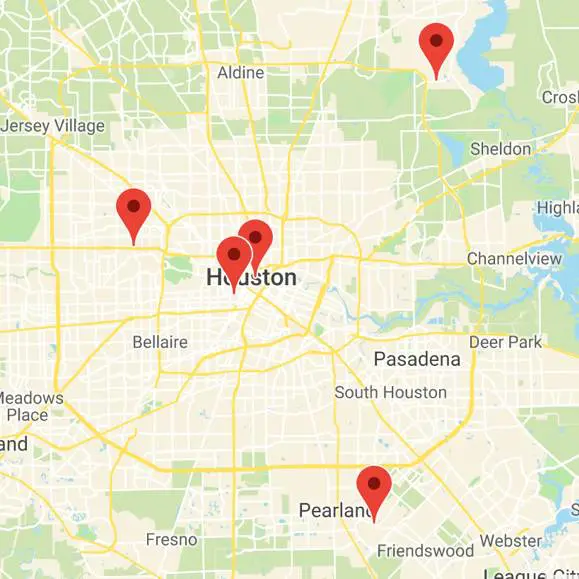We want you to remain as comfortable as possible as your mouth heals after your oral surgery. Because of this, we’ve worked hard to develop postoperative instructions to expedite healing and mitigate pain. It’s important to follow our instructions to ensure that your mouth heals quickly and successfully.
The day before your surgery
Take a 12-hour decongestant and expectorant tablet such as Mucinex D one day before your surgery. You’ll continue taking this medication for several days after the procedure (see directions below).
Before the anesthetic wears off
Wait until all numbness has faded before you attempt to eat anything; otherwise, you could bite your lips, tongue, or the insides of your cheeks, causing more discomfort once the anesthesia wears off.
Once the anesthetic fades
Pain: It’s normal to experience some discomfort. Make sure you take non-aspirin pain medication(s), using them only as directed. We will either prescribe medication to you or suggest over-the-counter medication to mitigate pain.
Nose bleeds: You may experience nose bleeds after surgery, but they should stop within a few days. Resist temptation to blow your nose and instead wipe it with a tissue. Blowing your nose will destroy the bone graft, so it’s very important that you don’t. Additionally, try not to sneeze. If you must do it, keep your mouth open and do not squeeze your nose.
Medications
- Salt water rinse: Make diluted salt water using two teaspoons of salt per cup of water. Rinse with 15 ml of the solution for 30 seconds twice daily (every 12 hours) until your sutures are removed.
- Ibuprofen: Take one 600 mg tablet every 4-6 hours for 3-5 days following your procedure (unless you’re allergic to ibuprofen). This is equivalent to three tablets of over-the-counter ibuprofen or Advil. Please take this medication as instructed, even if you aren’t experiencing pain. It’s very important that you do not exceed 2,400 mg (12 tablets) in any 24-hour period.
- If you are allergic to Ibuprofen: Take 1,000 mg of Extra Strength Tylenol every 4-6 hours for 3-5 days following your procedure. This is equivalent to 2 tablets of over-the-counter Extra Strength Tylenol. Please take this medication as instructed, even if you aren’t experiencing pain. It’s very important that you do not exceed 4,000 mg (8 tablets) in any 24-hour period.
- Take only one tablet of Extra Strength Tylenol per dose if you are taking any of the following medications: Norco, Vicodin, Tyenol #3, or Darvocet.
- If you have been given a prescription for pain medication, you can fill it at any pharmacy should you find that over-the-counter painkillers are not strong enough to relieve your discomfort. If you find that your prescription medication is too strong, cut the tablet in half. Please make sure you do not operate any heavy machinery or drive while taking Vicodin, Tylenol #3, or Darvocet.
- Decongestant and expectorants: It’s important to use a 12-hour decongestant and expectorant tablet such as Mucinex D. Take your first tablet one day before surgery, and from that point forward, take one tablet every 12 hours (one every 12 hours).
- Antibiotics: Take your antibiotics as prescribed until you’ve finished all the tablets to minimize the risk of infection.
Drug reaction: If you’re experiencing adverse effects from drugs such as nausea, vomiting, diarrhea, hives, itching or other effects, discontinue their use and call the office at 713-807-9877.
Potential side effects
Swelling: It’s common to experience chapped lips and slight swelling — or even bruising — around the operation site. To minimize swelling:
- Apply a towel-wrapped bag of ice or frozen vegetables to the swollen area for 20 minutes on, then 20 minutes off for the first day or two after surgery.
- After the first one or two days, apply moist heat to help relieve minor swelling.
- Keeping your head higher than your heart minimizes swelling, so make sure you are propped up rather than lying flat.
- If you experience any major swelling, contact your doctor immediately.
Tooth sensitivity: You may experience an increase in temperature sensitivity — especially to cold things — but it should subside a few weeks after surgery. Minimize sensitivity by keeping your mouth as clean as possible so plaque cannot build. If the sensitivity is extreme, contact your dentist for recommendations or possibly medications to increase your comfort.
Sore teeth: Teeth adjacent to the surgical area will sometimes shift slightly and can be sore for several days. If this does not improve, please bring it to our attention at your one week post-op visit.
Minor bleeding: You might notice minor bleeding making your saliva slightly pink for the first 48 hours after surgery. Resist temptation to rinse your mouth and avoid eating very hot foods during this time, as this could increase the bleeding. If the bleeding does not stop, apply light pressure to the operation site using a moistened piece of gauze or a moist tea bag (the tannins in the tea bag help to reduce bleeding!). You need to hold the gauze or tea bag in place for 20-30 minutes. Resist temptation to lift up the gauze or tea bag, as the pressure needs to be continuous to be effective.
Infections: Common symptoms of infection are excessive swelling and pain. If you experience this, begin using warm salt water rinses and contact our office for antibiotics and/or an appointment.
General Precautions to Follow after Surgery
It’s important to follow these post-surgical instructions as closely as you can to ensure a successful recovery.
- Eat soft foods that don’t need much chewing, and avoid chewing near the operation site. Some examples of good post-surgery food include scrambled eggs, mashed potatoes, pasta, and soup. Make sure eat enough to maintain good nutrition, and be sure to drink plenty of fluids.
- Avoid drinking alcohol until you have had your post-operative appointment.
- You should not smoke for 1-2 weeks after surgery. If you do, you likely will take longer to heal.
- Maintain good oral hygiene in the areas of your mouth that have not been affected by surgery. You can lightly brush just the biting surfaces of your teeth in areas where you have dressings.
- After you have eaten, rinse your mouth with lukewarm salt water. You can do this 4-6 times a day, gently rinsing for 30 seconds each time. Do not rinse vigorously!
- Beginning the day after your surgery, use Peridex, Periogard or Chlorhexidine for mouth rinse. Use in the morning and at night, making sure you rinse for 30 seconds each time.
- If you’ve been provided with a clear stent (an upper denture that covers the roof of your mouth), leave it in position for the first 24 hours. It is vitally important not to remove this, even if it pools with blood. Instead, rinse your mouth with lukewarm salt water or Chlorhexidine rinse. After 24 hours pass, you can wear your stent as much as you like, and you will probably find it more comfortable to do so while eating.
- Resist the temptation to fiddle with the surgery site with your tongue or fingers, to pull on your lips or cheeks to take a look at it, or have someone else look for you.
- Do not use a drinking straw as the sucking action can dislodge the blood clot. This will slow healing and could lead to infection.
- Avoid very hot foods. It’s okay to eat very cold foods (such as ice cream) as long as you use a spoon.
If you have any problems after office hours, please call the office number and do not hang up when the recording comes on. There is an option to be transferred to a live operator who will contact your doctor.



